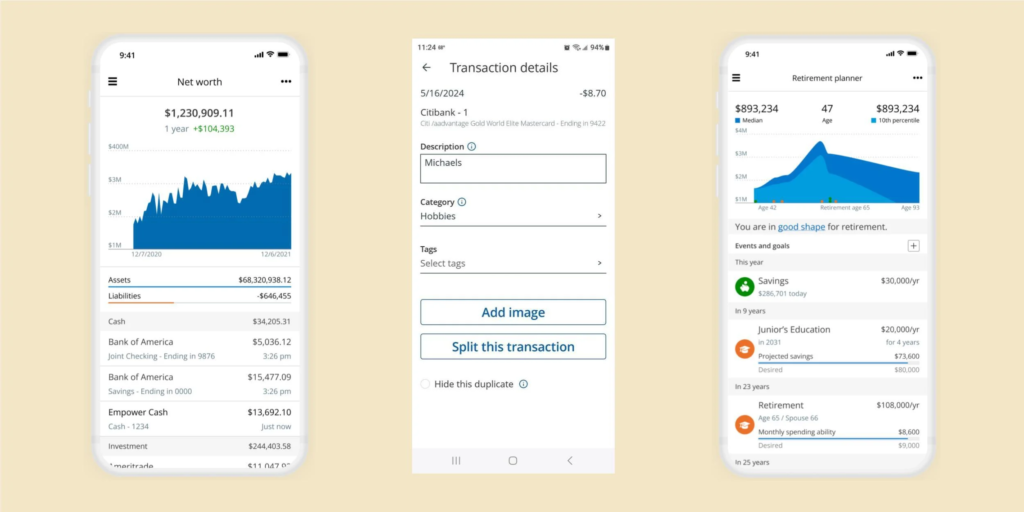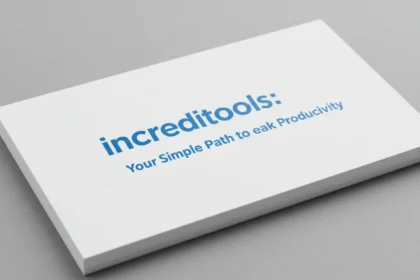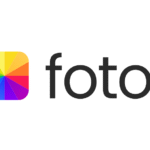Managing your money doesn’t have to be confusing, expensive, or time-consuming. With the right tools—especially free ones—you can take control of your finances, reduce your stress, and even grow your savings without being a financial expert. Whether you’re a student, a parent, or someone starting your financial journey, the right personal finance software can unlock your full money potential.
What Is Personal Finance Software?
Personal finance software is a digital tool that helps you manage your money all in one place. Think of it as your money’s best friend—it tracks your income, expenses, savings, and even your debt. Whether it’s a mobile app or a desktop platform, these tools are designed to help people of all financial backgrounds understand where their money is going and how they can use it better.
Some software connects directly to your bank accounts to automatically pull your transaction history, while others let you enter the data manually. But no matter how it works, personal finance software has one job—to help you make smarter money choices. From tracking your daily coffee spending to planning your long-term goals, the right software can make a huge difference in how you view and manage your finances.
Why Free Tools Can Be Just As Good
There’s a myth that you have to pay to get quality financial help—but that’s simply not true. In fact, many free personal finance tools offer the same level of support and features as paid versions. These tools are often backed by reputable financial tech companies and supported by millions of users worldwide.
Free tools can help you budget, save, track expenses, and even plan for retirement. Most of these tools generate income through non-intrusive ads or offer optional premium upgrades—so you’re never forced to pay. For many users, especially beginners, starting with a free option is often more than enough.
Another reason free tools work so well is that they simplify things. Instead of being overwhelmed by complex features, you get the basics that actually matter—spending tracking, budgeting tools, alerts, and visual reports. This simplicity helps you stay consistent and build better financial habits without feeling overwhelmed.
Top Free Personal Finance Software Picks
Choosing the best personal finance software can feel overwhelming, but the good news is you don’t need to search endlessly. We’ve handpicked some of the top-rated, beginner-friendly free tools that are trusted by millions and come packed with features. These tools can help you track your spending, budget smarter, and plan ahead—all without paying a dime.

Let’s explore a few top contenders:
Mint – Simple and Smart for Beginners
Mint is one of the most popular free personal finance apps in the United States—and for good reason. It’s perfect for beginners who want a simple, all-in-one financial tracking tool. Mint connects securely to your bank accounts, credit cards, and even investment accounts to show your complete financial picture in real time.
With Mint, you can categorize your spending, create budgets, and receive alerts when you go over budget or when bills are due. It also offers free credit score monitoring, making it a solid choice if you’re also looking to build or improve your credit.
Mint is great because of its user-friendly interface and clean design. Even if you’ve never used a finance app before, you’ll find it easy to understand. It’s ideal for anyone who wants to take the first step toward better money management.
Personal Capital – Track Your Money & Investments
Personal Capital is more than just a budgeting app—it’s a powerful financial planning tool. If you’re looking to manage your day-to-day expenses and track your long-term investments, Personal Capital is a top pick. And yes, it’s completely free.
One of its standout features is the investment tracking dashboard, which gives you a full view of your portfolio performance. It also shows your net worth, future retirement projections, and spending patterns.
While it’s designed for users who might have a bit more financial complexity (like 401(k)s or brokerage accounts), Personal Capital still works wonderfully for budgeting and basic expense tracking. The layout is easy to use, and the visuals (charts and graphs) make understanding your finances surprisingly simple.
Goodbudget – The Envelope System Made Digital
If you like the idea of controlling your spending using envelopes (a method where you divide your money into categories like groceries, gas, etc.), then Goodbudget is a must-try. It takes the old-school envelope budgeting system and brings it into the digital age.
Goodbudget is ideal for people who want to be very intentional with their spending. You set your monthly budget for each category and track it manually. This may sound old-fashioned, but it actually helps many users become more mindful of their habits.
This app is especially useful for couples or families, as it allows syncing across multiple devices. It’s perfect if you’re managing a shared budget or trying to stay on the same page with your partner.
How These Tools Help You Save Money
One of the most powerful things about using personal finance software is how quickly you start noticing spending patterns you didn’t realize existed. Whether it’s your daily coffee habit or unexpected subscriptions, these tools bring awareness to every dollar.
They also help you set clear savings goals. Want to save for a vacation? A new laptop? Your emergency fund? These apps can guide you step by step. Many of them even send alerts when you’re getting close to your limit or help you automatically move money to savings.
By tracking your spending and income in one place, you can make smarter decisions—like cutting unnecessary expenses and sticking to a budget that actually works for you.
What to Look for in Personal Finance Software
When choosing the best personal finance tool for your needs, it helps to think about what matters most to you. Here are some features to consider:
- Ease of Use: The tool should be easy to understand, especially if you’re just starting out.
- Security: Look for apps with bank-level encryption and multi-factor authentication.
- Budgeting Features: Does it help you plan monthly budgets and track them easily?
- Account Integration: The best tools sync with your bank, credit card, and investment accounts.
- Alerts and Reminders: Helpful notifications can prevent late payments and overspending.
- Customization: Everyone’s finances are different—your tool should let you create categories that fit your life.
If a tool checks most of these boxes, you’re off to a great start!
Other Helpful Features You Might Like
Sometimes, it’s the little extras that make a finance tool really useful. Beyond basic budgeting and tracking, here are a few bonus features to keep an eye out for:

Goal Setting Tools
Many free finance apps allow you to set and track goals. Want to save $1,000 in six months? Pay off a $500 credit card bill in three months? These tools break big goals into small, achievable steps. And when you can see your progress, you’re more likely to stick with it.
Spending Alerts
Getting a friendly notification when you’re spending too much in a category can be a lifesaver. These alerts help you catch bad habits early and stay within your limits. Some apps even let you customize alerts for different budgets or bills due dates.
Reports and Charts
Visual tools like pie charts, bar graphs, and trend lines make it easy to see where your money goes. Instead of looking at rows of numbers, you can glance at a chart and instantly understand your financial health. These visuals are especially helpful if you’re a visual learner or just want to make finance a little less boring.
Can Kids and Teens Use These Tools Too?
Absolutely! Some personal finance tools have special features or simpler interfaces that are perfect for kids and teens. Learning to manage money at a young age is one of the best life skills anyone can have. Tools like Goodbudget (with adult supervision) or apps like FamZoo or BusyKid (specifically designed for kids) can help teach budgeting, saving, and responsible spending early on.
Even if you’re a teenager with just a part-time job or allowance, tracking your money can help you build great habits now that will benefit you for a lifetime.
The Bottom Line
If you’ve ever felt confused, overwhelmed, or even embarrassed by your money habits, you’re not alone—but you’re also not stuck. Free personal finance software can be your secret weapon to unlock your full financial potential. Whether you’re just starting out or looking to get back on track, these tools are designed to support you, guide you, and help you take charge of your financial future.
Mint, Personal Capital, and Goodbudget are just a few of the many powerful options available, and the best part is—you don’t need to spend a dime to start using them. Take time to explore what each offers, set up your first budget, and watch how small steps lead to big results.







